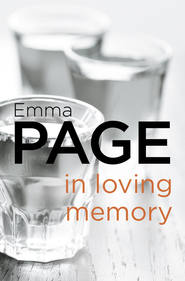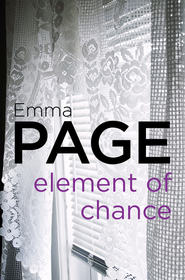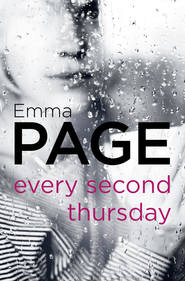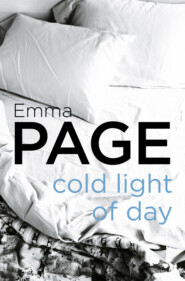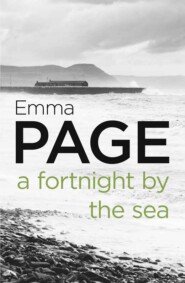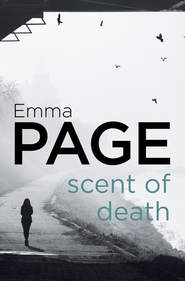По всем вопросам обращайтесь на: info@litportal.ru
(©) 2003-2024.
✖
A Violent End
Автор
Год написания книги
2018
Настройки чтения
Размер шрифта
Высота строк
Поля
The study was a cosy room on the ground floor, furnished with unpretentious comfort and due regard for the period of the house. The walls were hung with old theatrical mementoes; the bookshelves were filled with theatrical biographies, memoirs, reminiscences, histories, texts of plays, postcard albums of the Victorian beauties of the old music halls.
Desmond Hallam stood before his desk with a pen in his hand, nervously glancing through the essay on the nineteenth-century novel he had written yesterday evening, making minor alterations as he read.
Still a few years from fifty, of medium height, sparely built; a mild-looking man with nondescript features, thinning hair of uncertain brown brushed back from a lined forehead, hesitant eyes of the same indeterminate brown. He was nattily dressed, carefully groomed.
He had begun attending classes at the Cannonbridge College of Further Education in September. He had worked as a personnel clerk in the town until the takeover of his firm by a large national group at the beginning of the year. The negotiations leading up to the takeover had been a well-kept secret until the last possible moment and Desmond had been taken totally by surprise when the news broke. Not that he had been harshly dealt with; like all the other redundant employees he had been put out to grass on generous terms.
He had lived at Hawthorn Lodge a good ten years. His father had been the manager of a high-class menswear shop in a town some distance from Cannonbridge. After his death Desmond’s mother suggested joining forces with her son; she had been left well provided for.
The arrangement suited them both. Desmond was more than happy to leave his Cannonbridge lodgings to set up house with his mother, with whom he had always got on well. Mrs Hallam bought Hawthorn Lodge and the two of them lived a tranquil, self-contained life in harmony and content until Mrs Hallam’s death a few months after Desmond had been made redundant by his firm.
The clock struck the half-hour. Desmond blew out a resigned breath and laid down his pen. Good or bad, the essay would have to stand now. The literature class was at ten and he wouldn’t dream of being late. Better go up and see if Aunt Ivy was ready – he was giving her a lift into Cannonbridge. She rode in with him three or four times a week to do the shopping, making her own way back by bus.
He put the essay into his briefcase. His aunt, Miss Ivy Jebb, was his mother’s older sister, a retired assistant nurse. She had been staying at Hawthorn Lodge since the late spring when she had been urgently summoned by Desmond, alarmed at the lowered state of his mother’s health after a bout of influenza.
The two sisters had never been on close terms, Desmond’s mother finding Ivy bossy and manipulative. Over the years Desmond had laid eyes on his aunt barely half a dozen times. But his alarm at the deteriorating condition of his mother swept aside such minor considerations.
‘I’ll be along on the next train,’ Aunt Ivy had at once assured him. She had been delighted to leave her bedsitter in the northern town – eighty miles from Cannonbridge – where she had spent her working life, delighted to step out of the restricted existence that was all she could manage on her pension and dwindling savings, delighted to entrain for the rural peace of Overmead, the substantial comforts of Hawthorn Lodge. What was a little nursing in return for such rewards? She would have her sister on her feet in no time at all.
She had immediately taken over the running of the house. She nursed her sister with energy and competence and for some time Mrs Hallam appeared set on the road to recovery, but her weakened heart suddenly gave way.
Desmond had been devastated by his mother’s death. Coming so soon on top of his unexpected redundancy, it had thrown him completely off balance. There was now not even the familiar nine-to-five routine of work to distract his mind and he fell into a state of despairing grief.
Ivy Jebb was more than willing to stay on to deal with everything, take care of him, look after the house when he finally ended up for a short stay in the psychiatric unit of a local hospital, in a condition of total collapse.
‘You must make a new beginning,’ the psychiatrist advised him when he began to mend. ‘Enlarge your horizons, broaden your mind, find new interests.’
Desmond had dutifully nerved himself in due course to enrol at the college, choosing classes in local history, literature, play-reading. He broke his days up into segments, creating tiny points of interest to get him through the next hour or two, a book to be returned to the library, a cup of coffee in the college canteen, weaving little by little a web of activities that might gradually expand to fill the days and weeks, the months and years, warding off emptiness, bleakness and desperation.
Now he left the study, went up the stairs and gave a light tap on the door of Aunt Ivy’s bedroom.
‘I’m just coming,’ she called back. A moment later she threw open the door. A short, dumpy woman with a good deal of curly white hair and a soft, pink-and-white, indoor skin; she wore fashionably rimmed bifocal spectacles. She was dressed in a fawn-coloured jumper and skirt.
She greeted Desmond with the wide smile of determined motherliness which had been her most constant expression since she had walked in through the front door of Hawthorn Lodge, a smile somewhat at odds with the shrewd, detached, assessing regard of her pale blue eyes behind the lenses. Desmond gave her in return his nervous, placatory grin.
Ivy stepped back into her room and picked up a lightweight jacket of navy-blue woollen material from the back of a chair. She put it on, tugging a matching beret over her curls, picked up her gloves and shopping basket. She glanced out at the overcast sky.
‘I could do with my good Harris tweed coat, now the weather’s turning cold,’ she observed as she came out on to the landing and closed the door behind her. They set off down the stairs. I think it’s time I went back to fetch my winter things.’ She rather liked that remark, it set exactly the right tone of being in charge.
Desmond made no reply, he felt his heart give a nasty lurch. A couple of months ago, shortly after he had left hospital, he had casually raised the matter of when Ivy might be thinking of returning home. He had had no particular reason for mentioning the subject, there was no thought in his head other than that she wasn’t likely to be staying with him much longer.
To his immense astonishment – and consternation – Ivy had blandly informed him that she had given up her bedsitter just after he had gone into hospital. She had phoned her landlady who had quite understood that Ivy’s place was now with her nephew. The landlady had obligingly agreed to store Ivy’s belongings until Ivy could deal with them.
Desmond had all at once realized the inescapable truth: having got herself nicely bedded down in Hawthorn Lodge, Aunt Ivy hadn’t the slightest intention of ever letting herself be uprooted again.
‘I could pop there and back by train,’ Ivy mused aloud as they reached the foot of the stairs. ‘I could sort through my things, decide what to keep, give the rest to Oxfam. I shan’t want to keep a great deal, clothes mainly, a couple of pictures, a few books and ornaments.’ She gave him her open, guileless smile. ‘There’s no point in bringing any bedding, any pots and pans, crockery or cutlery, you’re more than well supplied with all that kind of thing here.’
He could manage only a vague murmur in reply. He felt himself borne along on an irresistible current.
They went out through the front door into the sharply scented autumn air. As he locked the door behind them he was assailed by a surge of guilt. He had cause to be eternally grateful to Aunt Ivy, she had been indispensable during the last few terrible months. But to live with him here for good – and she gave every sign of having a good many sprightly years left to her–that was something he hadn’t bargained for.
He backed his car out of the garage.
‘I’d have to stay overnight, of course,’ Ivy pondered as she got in beside him. ‘I couldn’t manage both journeys in one day, not by train.’
Still he could find nothing to say. She settled herself in beside him, fastened her seat-belt. ‘It would be a lot quicker by car, of course. But it would be a dreadful imposition to ask you to take me, I wouldn’t even think of suggesting it.’ She gave him her resolutely maternal smile. Behind her glasses her eyes gleamed like pale blue gimlets. ‘If only I could drive, I’d hire a little van myself and shoot up there and back. I’d quite enjoy it.’
Still he said nothing but started up the engine. She flicked a glance at his face in the mirror. She could see her shots had gone home; he looked wretched, guilty, indecisive.
She turned her head and looked out at the blowy morning. She need say nothing more now, it could all stew quietly on its own, she was totally confident of the outcome.
The day grew steadily colder, with a gusting wind. Rain fell intermittently across the region.
The clock over the impressive entrance to the Cannonbridge College of Further Education showed twenty minutes to six. The college was housed in a tall turn-of-the-century building near the town centre, not far from the public library.
Much of the building lay in darkness; most of the daytime classes were over by this time and the evening classes weren’t due to begin for the best part of two hours.
Light shone out from a second-floor room where a class in English language was being held for the first-year General Studies group. In the third row Karen Boland sat beside Lynn Musgrove, chewing her lip over a particularly tricky grammar question.
The classroom door opened and a middle-aged woman clerk came softly in. She went up to the desk and spoke to the lecturer in a low murmur; the class worked diligently on. By way of reply the lecturer gave a nod and a jerk of his head at where Karen sat.
The woman went over to Karen, stooped and spoke to her in the same subdued tone. Karen laid down her pen, rose and followed her from the room.
A few minutes later Karen returned and resumed her seat. Before she again began to wrestle with the grammar questions she scribbled something on a scrap of paper and slid it across to Lynn Musgrove who ran her eye over it and then slipped it into her pocket.
CHAPTER 3 (#ulink_5219cbb5-d65d-5756-ab3e-ff89adf6114b)
Ten minutes past seven on Saturday morning, not yet daylight. Sounds began to penetrate Christine Wilmot’s sleep: the rattle of a wheelbarrow, footsteps on gravel. She stirred and rolled over, glanced across at the other bed. It was empty, the covers thrown back.
She switched on the bedside lamp and looked at the clock. After a moment or two she got slowly out of bed, yawning. She put on her slippers and housecoat and went over to the window.
She drew back the flowered curtains. The morning was quiet and still after yesterday evening’s wind and rain. Along the skyline lay a band of deep grey cloud, shading into silvery grey above; frail streaks of carmine rayed out over the horizon.
Down below, light streamed out over the garden from the kitchen window. The evening’s stormy lashings had stripped leaves from trees, the last scarlet and yellow roses from the bushes, flattening dahlias in the beds, golden rod along the borders.
Ian was busy dealing with the havoc. He turned his head and saw her standing at the window, raised a hand in salutation and resumed his task.
Christine left the window and crossed to the dressing table, peered at her face in the glass, ran a comb through her hair. She went slowly downstairs and made a start on the breakfast. She always cooked a substantial fry-up on Saturday morning. However busy the day might be, Saturday always retained something of a holiday air, a hangover from childhood schooldays. And there was time to enjoy and digest a good breakfast. Christine never shopped on Saturdays when the stores were crowded; she got all that out of the way on Thursday morning before her own busy time began. On Saturdays she drove out around the hamlets and villages to the north of Overmead, a prosperous rural area where she had by now built up a highly satisfactory trade.
The kitchen was warm from the heat of the all-night stove. She put the coffee on to percolate, took bacon and sausages from the fridge. She heard Ian come in through the back door a few minutes later as she was rinsing mushrooms and tomatoes under the tap. Ian went into the utility room, coming through into the kitchen a little later when she was back at the cooker again.
‘You’re an early bird,’ she greeted him. ‘How long have you been up? I never heard you.’
He didn’t answer her question. ‘I tried not to wake you. I didn’t sleep too well, I had a touch of indigestion. I went along with some of the committee last night, after the meeting. We went to the chairman’s house, his wife had laid on some refreshments. I thought I might as well get up and get going, instead of lying in bed, tossing and turning.’ He gestured out at the garden. ‘Plenty to be done after the storm.’
She stirred the contents of the frying-pan. ‘Do you want fried bread with your breakfast?’
He made a grimace. ‘No, thank you.’






